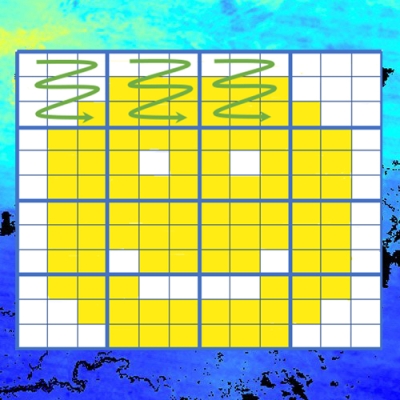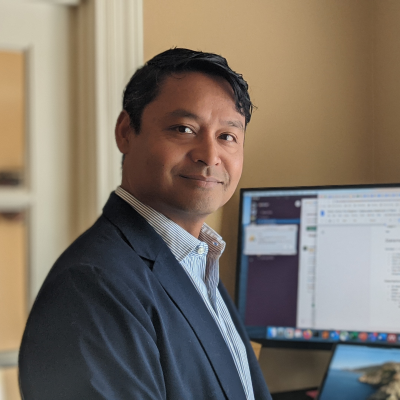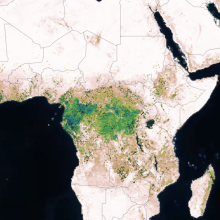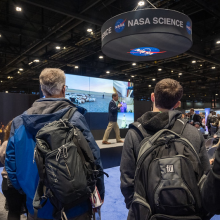The ongoing evolution in data, software, and computers is transforming the core tools of science and changing both what questions scientists ask and how they find the answers. IMPACT team scientist Dr. Chelle Gentemann is the first author of the research article “Science Storms the Cloud”, published in AGU Advances, which examines these trends and their implications for open science. We sat down with Dr. Gentemann to get her insights into the central themes of the article.
For decades, the method by which scientists worked with data was to download and analyze the data on their local computers. This imposed hurdles to collaboration when other scientists did not have access to the same localized data, software, and computers. It also provided a de facto advantage to scientists at larger institutions with faster internet connections and ready access to computers. Now, more data are being stored and analyzed on the cloud, allowing scientists to share their software. Open access in the cloud means that anyone can access a remote cloud computer using their web browser. This makes it easier to collaborate because everyone can access the same data, software, and compute resources. Also, more people can access powerful computers and do open science. Dr. Gentemann emphasizes that this is a different way of doing science but as with any new approach, there are potential drawbacks. Care needs to be taken that this new way of doing science includes a broad diversity of people so that we get better answers to our science questions, and faster than ever before.
Dr. Gentemann points to an example of this dynamic in the Binder project which combines open software and cloud computing to advance reproducibility and simplify sharing among teams. Through a simple web browser window, Binder connects users, in one-click, with an interactive cloud-based JupyterHub running a user-specified collection of computational notebooks.
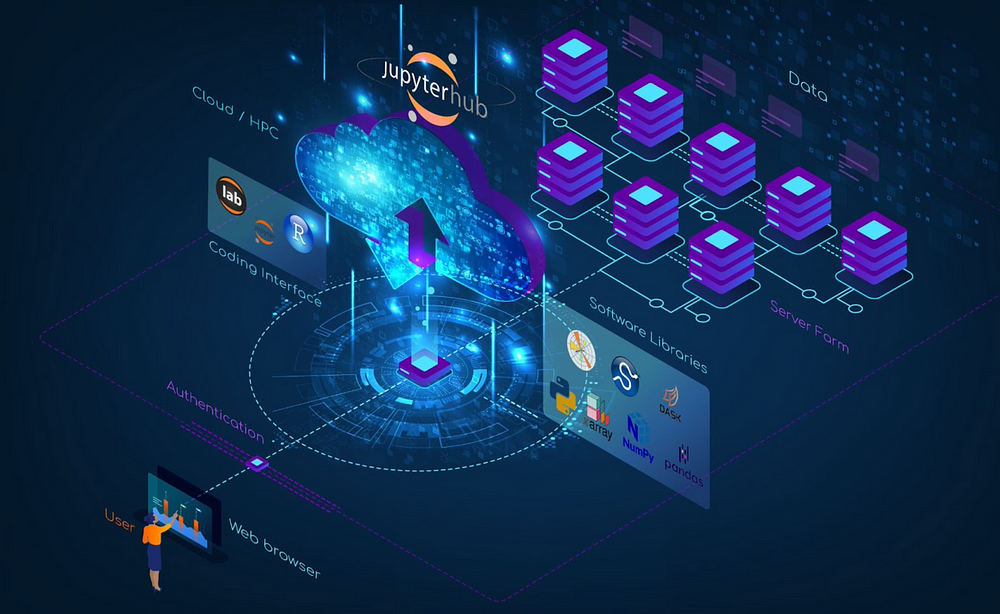
Key points in the “Science Storms the Cloud” article are:
• Science stands at the cusp of a new, cloud-enabled era of open science.
• Advances in data, software, and computing are enabling transformational, interdisciplinary science, changing the realm of possible questions.
• Open science communities are deliberately designed to simultaneously advance science and increase inclusivity.
Dr. Gentemann elaborates on the significance of these points for the open science community:
"Many of the difficulties creating reproducible work flows are being / have already been mitigated by advances in open source technology. The article is to highlight how moving science to the cloud can enable open science and broaden participation."
In particular, open science and open source software empowers researchers by giving them increased credit and ownership of their software. This can be extremely valuable for historically excluded groups, who are often in junior positions within their institutions. Dr. Gentemann believes this change in the research dynamic will enhance the ability of science to innovate through deeper collaborations:
"I have worked for 23 years on satellite algorithm development. Algorithms are complex and take years to develop, but a lot of that effort (reading in data, filtering it, outputting data) is replicated over and over by individually funded investigators who don’t share code. We are all reading in the same files, but past that point, everyone is on their own. This is so inefficient. Algorithms would develop faster, allow for more innovation, and provide better results if we collaborated on them instead of competing. Open science will advance that."
View Dr. Gentemann's LinkedIn profile.
More information about IMPACT can be found at NASA Earthdata and the IMPACT project website.
